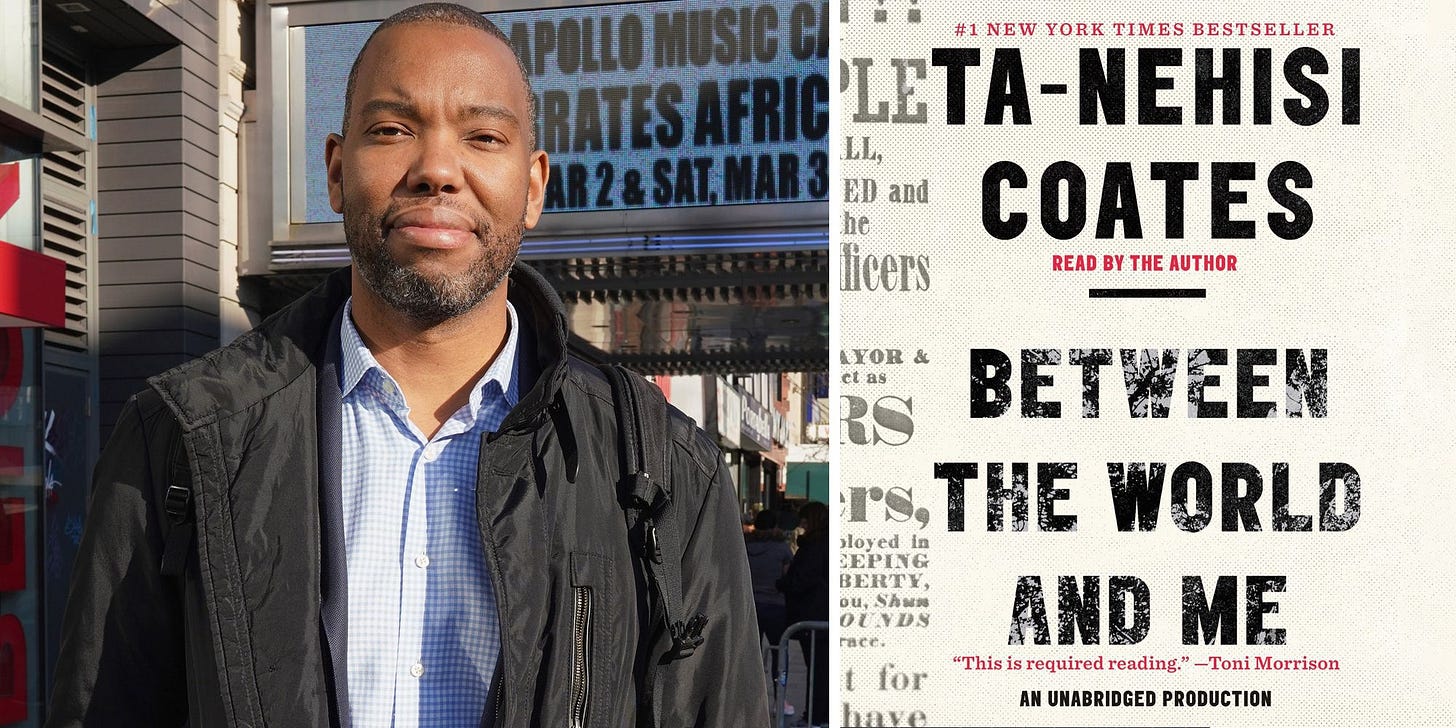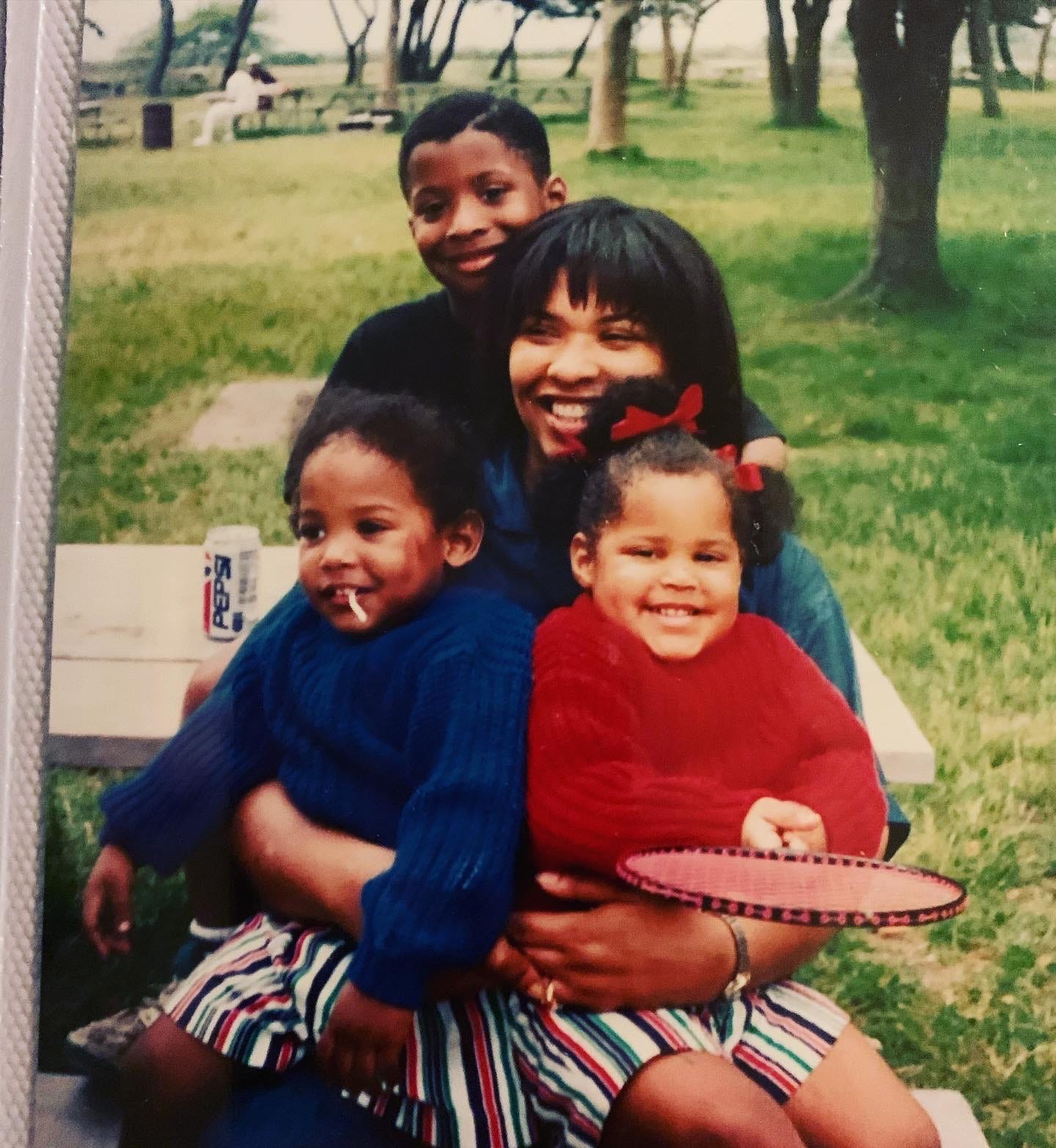How John Coltrane reminded me to be patience with myself
How John guided me to love myself a little more
I could recall the exact moment when I was able to correlate John Coltrane’s music to my existence. It was a warm, bright March afternoon. A day that gave us a glimpse of how pretty spring will be. I was listening to my self curated Spring Spotify playlist and Coltrane’s “ My Favorite Things” came on. While listening and after staring into the blue sky from my balcony, I began to look through my collection of Kindle books on my phone to find Ta-Nehsi’s Coates “ Between the world and me”. I took a strong interest in rereading the book, after an early morning conversation with my wife about my many writing anxieties. She suggested I read authors or books that I aspire to be like. She promoted me contrasting the authors experiences with my own and wanted me to respect that all writers are providing an unknown perspective.
When I opened “ Between the world & Me”, it was still on its final page. Either because I didn’t have wifi access or didn’t think my opinion was worthwhile, I never left a proper review of the book. As I stared at the blue hyper links on the sandpaper color screen, I decided to myself that today that would change. I clicked on the link, it brought me to Amazon’s customer book review page and I saw the options for leaving comments. Immediately, I felt anxiety tighten my chest. My thoughts became jumbled. “I have to title my comment?” or“ How succinct could I make it? “ easily rolled into “ Should I even write a comment?” in my mind. While managing the tightness in my chest and the impeding questions in my mind, John Coltrane still played.
Lately, I’ve learned about John Coltrane. I’ve learned that he was on a personal journey to be the best person he could and he used his musical talent to cultivate his self growth. He’s been a cornerstone in working through my anxiety.
At the tender age of 30, John was kicked out of Miles Davis’s band to battle drug and alcohol addiction. He had to bear witness to the ugliest parts of himself. With the essential help of his first wife Naima, he learned and put into practice the beliefs of Islam. In that journey of self growth, he became inquisitive about other religions all the while practicing his saxophone earnestly. John’s quest in studying other religions lead him to a personal conceptual understanding that all faith is connected. This personal doctrine helped him build back his identity. His journey out of addiction, quickly taught him that work on self and career are inextricably connected. The work he completed on himself translated in his musical performance. He desperately wanted to understand himself, so he took his time. Any Jazz enthusiast would agree that Coltrane used his saxophone as an extension of himself and his interpretation of Rodgers & Hammerstein’s “ My Favorite Things” bends a familiar song to its absolute limits.
Coltrane stretched popular show tune from a modest two minutes and 30 seconds to a protracted fourteen minutes. He wanted to showcase the capability of playing music within a modal format. He chose a song that was familiar to the public, something simple but catchy so he could improvise over simplified chord structures. Coltrane understood that the songs unusual form gave him the ability to ostensibly only play E minor and E major chords, so he simplified the song down to those two music elements or what musicians call “tonics”. In this form, both he and his band had the ability to shift tones and moods to complement the melody of each chord change. This form of musical experimentation gave Coltrane one of the first a chances to allow himself to explore how far he could push his craft.
“I’ve found you’ve got to look back at the old things and see them in a new light.” — John Coltrane, 1960, Down Beat magazine”
John Coltrane was born on September 23, 1923 in Hamlet, North Carolina. Both of his parents were musicians: His mother was a church pianist while his father was proficient at violin. Both of his grandfathers were ordained ministers in the African Methodist Episcopal Zion Church. This gave him an avenue into spirituality from an early age.
John believed his work to be a conduit for spiritual enlightenment. He used musical elements of what he learned growing up in the church to inform his playing. This lead to many of fans describing his performances as transcendence. He played with fervor and passion that was unmatched, music historians often liken his work to the wailing of human voices in a church. To achieve this level of stellar playing, John needed to know himself completely. He needed to be secure in himself and like all things, that process takes time.
Audience members described his performances bizarre or that it seemed as if he were alone being transported to a different world.
My mother had a similar journey. At the age of 27, while being pregnant with me, she had to honestly assess herself and decide if she was in a position to raise me. After a hard look at herself, she decided to give me up for adoption to my grandfather. My mother and I tried to have a relationship from a far but her drug addiction stole her away from me. Four years after my birth, she called my grandfather again and asked him to adopt the twins she was pregnant with. He and his wife agreed. With her children safe, my mother had the ability to fully focus on herself and kick her addiction. She entered a 12 - Step Program and like Coltrane, had to bare the ugliest parts of herself. She had to hold herself accountable for her actions and work earnestly on self improvement. She was forced to confront every dimension of her existence, every bit of stored trauma. Her extraordinary personal achievements of sobriety gave her the opportunity to successfully raise my younger twin bother and sister. And like Coltrane, become a master of herself and personal process. In order for her to take on this task, she needed time. Time to learn herself in her own way. Today she is one of my closest friends.
Writing is a tool for me to better understand myself. I want to respect that my feelings and thoughts are two different things. I would like my behavior to reflect positive associations with difficult tasks in life. This is all a personal building process. I would like to understand my psyche in stages and relate all my feelings to logic. Writing helps in my navigate my feelings and thoughts. It teaches me that my thoughts have value and I must learn to accept myself completely if I have any hope to grow within myself or craft. Generally, Drug addicts are seen in our society as burdens. Our nation has a tendency to treat those afflicted with the mental disease of addiction as if they are culprits and are solely responsible for their misfortune. Both John and my mother’s ability to overcome themselves while simultaneously learning to love themselves is inspiring and gives me hope that I too, can learn to be more patient with myself.



